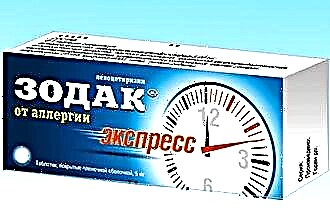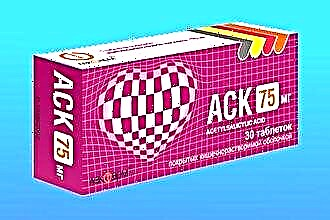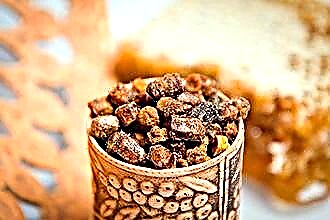
Often the cause of the disease is viruses or bacteria that cause inflammation and swelling of the laryngeal mucosa.
In most cases, a doctor diagnoses stenosing laryngitis if they hear hoarseness and wheezing.
In the very concept of "stenosing" it is indicated what happens to the larynx. Against the background of the multiplication of pathogenic microorganisms and the release of toxins, the mucous membrane is damaged with the development of severe edema. As a result, the lumen of the larynx narrows and breathing becomes difficult.
It is not worth hoping for an independent cure for the disease in children, because there is a high risk of croup. It develops extremely quickly and leads to progressive respiratory failure and suffocation.
The most common causes of laryngitis include:
- viral infections, which are manifested by muscle aches, runny nose, low-grade fever and sore throat. The peculiarity of viral diseases is the temperature above 38 degrees, which lasts no more than 2-3 days, after which it can be kept at the level of 37.3 degrees;
- bacterial pathogens - provoke the appearance of severe pain in the oropharynx and dry cough. Usually rhinorrhea does not bother. Fever reaches 39 degrees and persists for a long time;
- contaminated air with chemicals or dust particles. As a result of irritation of the larynx, inflammation and swelling appear. Hot dry air can also cause laryngitis. This is due to the strong heating of the air in the children's room or in the car by the heater;
- local hypothermia (drinking cold drinks, ice cream) or general (freezing, getting wet in the rain);
- overstrain of the vocal cords. This applies to children who like to scream, cry loudly or sing in preschool classes;
- allergic reactions.
Symptom complex for laryngitis
In order to suspect an inflammation of the larynx in time, it is necessary to pay attention not only to the sonority of the child's voice, but his behavior and appetite.
In most cases, the disease begins quickly and is characterized by the following clinical symptoms:
- change the timbre of the voice. Hoarseness indicates swelling of the vocal cords, but this symptom is less common in infants;
- poor appetite. Parents may notice that the child refuses their favorite food, and the newborn - from the breast;
- runny nose and sore throat - appear in almost all cases of laryngitis caused by infection;
- aphonia and a soundless cough indicates extensive inflammation and severe edema, which requires immediate attention;
- wheezing, which indicates a narrowing of the airways. The whistling is especially pronounced when breathing through the mouth.
- "Barking" cough is a sign of laryngeal stenosis. At first, when coughing, it is not possible to cough up phlegm, but over time, against the background of treatment, the cough becomes moist;
- subfebrile hyperthermia, but the absence of an increase in temperature is possible.
The listed symptoms are quite difficult to notice in infants, which poses an even greater danger to their lives due to the inability to make a timely diagnosis.
All parents need to know the symptoms of laryngitis and the signs of incipient croup. This makes it possible to quickly call an ambulance and begin treatment. The croup goes through 3 stages, which are characterized by:
- hoarseness of the voice, which gradually turns into aphonia, and the voice loses its sonority;
- "Barking" cough becomes silent;
- as the lumen of the larynx narrows, shortness of breath appears, which rapidly increases. It is difficult for a child to inhale, so he breathes often and shallowly;
- with the growth of brain hypoxia, the child becomes
 capricious, frightened, strong crying begins, which makes breathing even more difficult. The appearance of lethargy is possible;
capricious, frightened, strong crying begins, which makes breathing even more difficult. The appearance of lethargy is possible; - the cardiovascular system reacts to laryngospasm with a rapid heartbeat, which gradually turns into bradycardia;
- blue discoloration of the skin. It starts at the tips of the fingers, nose, earlobes and lips, then covers the neck, chest, face and limbs.
First aid for croup
Some parents, having repeatedly encountered croup in a child, know how to act to prevent the condition from getting worse. If the complication develops for the first time, you need to call an ambulance and follow the following recommendations:
- first - you need to calm down the parents and calm down the child, not allowing hysteria;
- second, the child should be given plenty of alkaline liquids to drink. Borjomi or any other non-carbonated alkaline water can be mixed with warm milk (1: 1). You can also add 1 g of soda to a glass of milk;
- the third is to ventilate the room to provide oxygen access;
- if there is no fever, warm foot baths. This will help increase blood delivery to the lower extremities, thereby reducing laryngeal edema;
- a mandatory item - medicines for laryngitis in children.
If a nebulizer is not available, inhalation can be carried out in the bathroom. To do this, pour hot water into a basin and add baking soda. The child can play with toys or look at pictures in books while inhaling alkaline vapors.
| Group of drugs | Action | Note |
|---|---|---|
| antihistamines (Suprastin, Loratadin, Zodak) | Reduce tissue swelling, have a slight sedative effect | Used in syrup or tablet form |
| Hormonal preparations (Pulmicort) | Has a fast anti-edema effect, stabilizes cell membranes, preventing the appearance of new edema. Strong anti-inflammatory effect | Inhalation is in progress |
| Alkaline liquids (saline, Borjomi) | Moisturize the mucous membrane, prevent its damage and increased edema | Used by inhalation |
| Antipyretic drugs (Paracetamol, Panadol) | Reduces the severity of fever, thereby reducing shortness of breath, anxiety and fluid loss through sweat | Applied in the form of a syrup |
Therapeutic tactics for laryngitis
A doctor should treat laryngitis in children, therefore, at the first signs of illness, you should go to the hospital. If the doctor allows treatment at home, parents need to strictly follow the recommendations and monitor their implementation by children. Of course, it is not always possible to explain to the child the rules of behavior during the treatment period, but you still need to try. So, drug therapy is carried out against the background of compliance:
- bed rest, which is especially difficult for children;
- voice rest, which is also difficult to control in children. It is advisable to limit his communication and prohibit shouting;
- control over humidity in the nursery. You can use a special humidifier. Regular wet cleaning is also necessary;
- plentiful drinking regime. The liquid should be warm, non-carbonated, so as not to irritate the mucous membrane of the oropharynx. Recommended milk with honey, soda, mineral water, jelly, compote or tea with raspberries. Adequate intake of fluid allows you to accelerate the elimination of toxins and improve the condition. In addition, the viscosity of sputum decreases and its excretion is facilitated;
- proper nutrition. During the period of illness, food should be gentle, light and not irritate the mucous membrane.Broths, fresh vegetables, fruits and dairy products should be enriched in a nutritious diet. Spicy, hot, cold food and carbonated drinks are prohibited.
Drug treatment is carried out using several groups of drugs (antihistamines, antipyretics, antiseptic - for rinsing, as well as cough medicine). Now let's take a closer look at each group of medicines.
An antiallergic drug is prescribed to reduce swelling of the vocal cords and a little sedation in children:
- in tablet form, Zodak, Suprastin or Claritin is prescribed;
 syrup can be drunk by small children - Loratadin or Zyrtec.
syrup can be drunk by small children - Loratadin or Zyrtec.
Various medications may be prescribed to reduce cough:
- Codeine, Tusuprex, Sinekod, Herbion (plantain), Libexin - are used for dry cough. Syrup for laryngitis in children Sinekod is taken before meals. Its action is to expand the bronchi, reduce coughing and facilitate the excretion of thick secretions. Even babies are prescribed;
- inhalation with Berodual - with bronchospasm;
- Erespal is used for any cough. The action consists in the expansion of the bronchi, reducing the swelling of the mucous membrane and the inflammatory process. Until the age of 14, syrup is prescribed, then pills are allowed;
- with a wet cough, Gerbion (primrose), Gedelix, ACC, Bromhexin and Lazolvan are recommended. Ascoril syrup is prescribed for difficult sputum separation. The dosage is calculated taking into account the age of the small patient;
An antipyretic drug for laryngitis in a child is used when the fever exceeds 37.7 degrees. Paracetamol-based drugs are recommended, such as Efferalgan, Panadol, or Cefekon.
For local treatment, solutions for rinsing the throat (from 6 years old) are used - Miramistin, Chlorhexidine, Givalex or Ingalipt. From antiseptics in the form of an aerosol, Orasept, Tantum Verde and Miramistin are recommended. If the child cannot dissolve the lollipops, you can grind the Lisobact tablet into a powder and sprinkle it on the mucous membrane of the child's cheeks little by little. At an older age, Strepsils, Lizak, Faringosept or Decatilen are prescribed.
Inhalation is especially important in the treatment of laryngitis. They have a quick effect and speed up recovery. For the procedure, you can use Lazolvan (mucolytic agent), Berodual (bronchodilator drug), Pulmicort (hormonal drug) or Dekasan (antiseptic).
It is prohibited in the treatment:
- carry out inhalations and warming procedures (mustard plasters, foot baths) with fever above 37.5 degrees;
- gargle and inhale hot solutions;
- give expectorant solutions to infants without consulting a doctor;
- independently stop taking medications prescribed by your doctor.

 capricious, frightened, strong crying begins, which makes breathing even more difficult. The appearance of lethargy is possible;
capricious, frightened, strong crying begins, which makes breathing even more difficult. The appearance of lethargy is possible; syrup can be drunk by small children - Loratadin or Zyrtec.
syrup can be drunk by small children - Loratadin or Zyrtec.

